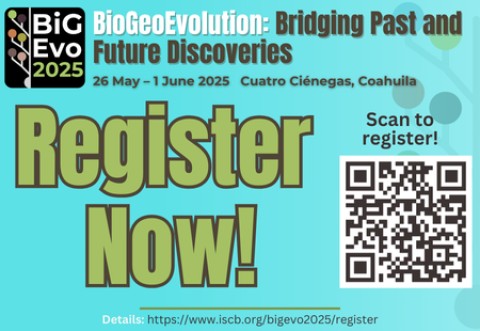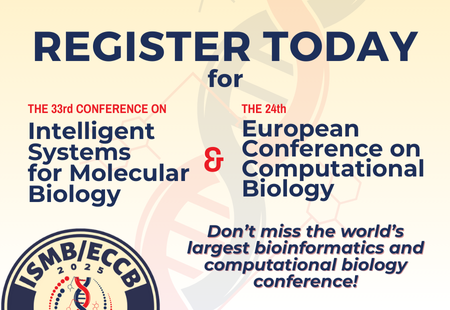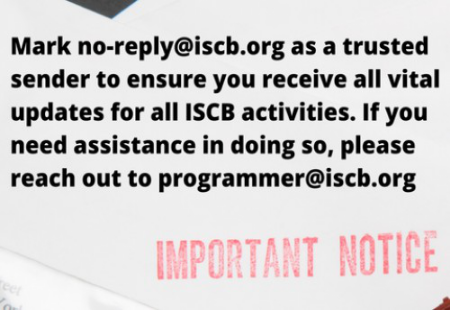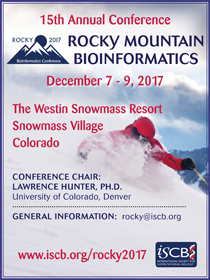 |
Tom Hraha, Ph.D.
Research Scientist, Bioinformatics
SomaLogic, Inc.
Boulder, Colorado, USA
Biography: pdf
SOMAscan™ Proteomic Insights Contrasted with Genetic Insights in Down Syndrome Patients: The Need for a Molecular Phenotype Approach
Your genome is essentially the same as it was the day you were born (excepting cancer and some immune cells), but your body is likely not. Consulting the genome sequence to understand your health is akin to unrolling the blueprint of a 50-year-old building to understand the leaky pipes and sagging walls that exist today. The blueprint might suggest potential future health issues, but not to a high degree of certainty.
So what should we measure in addition to the genome? To understand the current health status of the individual (and changes in that status over time), we have to go beyond genotype to a deep measure of phenotype, which has always been the essential focus of medicine to diagnose and treat the individual. Tools are only now emerging that allow us to see individual phenotypes broadly at the molecular level.
One such tool is SOMAscan®, a high-throughput, multiplexed proteomic assay that is 15 years in the making. Using modified aptamer binding reagents (SOMAmer® reagents) SOMAscan® measures >5,000 unique proteins – or approximately 25% of the proteome. This has allowed us to develop “molecular phenotype” approaches with the goal of providing actionable health insights that go far beyond the intrinsic limits of genomic analyses.
The example presented will be Down Syndrome (trisomy 21), where an additional chromosome 21 does not lead to a proportional increase in circulating proteins encoded on that chromosome compared to the other 22. Therefore, the etiology of this disease must be understood from a phenotypic level. |
- top -
 |
 |
Kirk E. Jordan, Ph.D.
IBM Distinguished Engineer
Data Centric Solutions
IBM T.J. Watson Research & Chief Science Officer
IBM Research UK
Biography: web
Data Centric Systems: Algorithm Exploitation & Evolving Cognitive Examples
As has been stated many times the volume, variety, velocity and veracity data is pushing how we think about computer systems. IBM Research’s Data Centric Solutions organization has been developing systems that handle large data sets shortening time to solution. As various features to improve data handling now exist in these systems, we need to begin to rethink the algorithms and their implementations to exploit these features. As bioinformatics often deals with large data sets, I will describe briefly describe the some of the hardware features, give an example of our early work to exploit these features. In addition, cognitive computing using machine learning techniques is all the rage. I will show how we are continuing to evolve and apply cognitive computing to address a variety of problems in the biological sciences areas. |
- top -
 |
 |
Maricel Kann, Ph.D.
Associate Professor
Department of Biological Sciences
University of Maryland, USA
Biography: web
A Protein-Domain Approach for the Analysis of Disease Mutations
Identifying the functional context for key molecular disruptions in complex diseases is a major goal of modern medicine that will lead to earlier diagnosis and more effective personalized therapies. Most available resources for visualization and analysis of disease mutations center on gene analysis and do not leverage information about the functional context of the mutation. In addition, these gene-centric approaches are confounded by the fact that gene products (proteins) may share some functional sub-units or protein domains but not others. I will describe a resource for domain mapping of disease mutations, DMDM, a protein domain database developed by our group in which each disease mutation is aggregated and displayed by its protein domain location. We have also developed a methodology using domain significance scores (DS- Scores) to detect statistically significant disease mutation clusters at the protein domain level. When we applied the DS-Scores to human data, we identified domain hotspots in oncogenes, tumor suppressors, as well as in genes associated with Mendelian diseases. In addition, I will describe recent work on analyzing cancer somatic mutations from individual cancer patient genomes. We found that incorporating information about classification of proteins and protein sites leads to new hypotheses regarding the role of tumor somatic mutations in cancer. Our analysis confirms that the domain-centric approach creates a framework for leveraging structural genomics and evolution into the analysis of disease mutations. |
- top -
 |
 |
Renée Deehan Kenney, Ph.D.
Head of Biology and Bioinformatics
PatientsLikeMe
Massachusetts, USA
CV: .pdf
Digital Me: Developing a Learning Health System through the Integration of Longitudinal Patient-generated Health Data with Multi-omic Molecular Measurements
PatientsLikeMe has over a decade of experience collecting patient-generated health data (PGHD) with the purpose of helping individuals track information about their health to improve their outcomes. This year, we launched Digital Me, a program whereby individuals can also donate longitudinally collected biosamples for multi-omic analysis. The goal is to develop a learning system whereby individuals benefit from insights gained about their health state through the analysis of both PGHD and multi-omics data. PatientsLikeMe has collected over 1000 blood draws from healthy controls and patients with neurological, immunological, mental health and pain and fatigue disorders, and are running DNA and RNAseq, proteomics, metabolomics, lipidomics, immunosignature and methylomics measurements on these samples. Health questionnaires are administered at the time of biosample collection and in between biosample collection, and particular emphasis is taken to collect biosamples during changes in health state; e.g., starting or stopping a new medication, the initiation or resolution of a flare. Here, we will share our development of an analysis platform to extract scientific insights from these data, as well as early results from one of the studies. |
- top -
 |
| Joint Presentation |
 |
Olivier Lichtarge, Ph.D.
Baylor College of Medicine
Texas, USA |
 |
Stephen Wilson
Baylor College of Medicine
Texas, USA
Biography: web |
MeTeOR: a Literature Network for Hypothesis Generation and Precision Medicine
The paradigm of hypothesis-driven discovery depends on an understanding of the literature to guide experiments. However, as the number of publications grows exponentially, the ability to read the literature increasingly falls short. To relieve this bottleneck, we introduce MeTeOR, a network for automated knowledge summarization and hypothesis generation, which aggregates PubMed articles by connecting MeSH indexing terms curated by the National Library of Medicine. MeTeOR tallies more novel associations among genes, drugs and diseases than other databases and is more reliable than existing natural language processing algorithms. When combined with automated hypothesis generation, MeTeOR analyses of past literature predicted associations discovered afterwards. In a prospective example, immunoprecipitation mass spectrometry supported both known and novel epidermal growth factor receptor associations predicted by MeTeOR. We conclude that MeTeOR generates valuable integrative hypotheses through a uniquely broad and accurate summarization of PubMed knowledge. |
- top -
 |
 |
Krista Meyer, Ph.D.
Director of Proteomic Analysis, R&D
Biodesix: Making Medicine Personal®
Colorado, USA
CV: .pdf
Co-authors:
Julia Grigorieva- Biodesix, Inc, Research, US
Carlos Oliveira- Biodesix, Inc, Research, PT
Heinrich Roder- Biodesix, Inc, Research, DE
Joanna Roder- Biodesix, Inc, Research, UK
Development of Clinically Relevant Tests from Human Serum Samples: A Look at the Circulating Proteome
Therapeutics for the treatment of cancer patients are changing with the introduction of immunotherapies. Instead of targeting the tumor itself, the mechanism of action for immunotherapies relies on reactivation of the immune system such that the host can beat the cancer using the appreciated complex system evolutionarily developed to heal human disease. In oncology, clinical trials have proven that immunotherapies are effective at reducing tumor burden and extending survival in cancer patients across many indications. However, not all patients benefit from all immunotherapies and some patients may have primary immunotherapy resistance. A test identifying patients, prior to treatment that are unlikely to benefit from particular immunotherapies would be useful for guiding therapeutic decision making. Biodesix uses a hypothesis-free approach to building clinically relevant tests allowing the creation of multivariate classifiers that reflect the complexity of biological interactions without any bias from expectations about their mechanisms. Mass spectral data collected from human serum samples are analyzed by the Diagnostic CortexTM robust data analytics platform to design classifiers with clinical relevance. Using this approach, we have developed a test to identify patients with melanoma that have particular poor outcomes on anti-PD1 immunotherapy and therefore may be unsuitable candidates for treatment with drugs targeting this immune suppressing signal. While oncology has been the primary focus of our development work to date, understanding circulating proteome with our analytics platform could be extended to make new discoveries in a broad spectrum of human diseases. |
- top -
 |
 |
Bjoern Peters, Ph.D.
Associate Professor
La Jolla Institute for Allergy & Immunology
California, USA
Biography: web
Open Biomedical Ontology Services
The Open Biomedical Ontologies (OBO) Foundry is a community organized project that aims to facilitate the discovery, development, application, harmonization, interoperability and sharing of ontologies. Its member ontologies include among many others the Gene Ontology (GO), Relations Ontology (RO), Disease Ontology (DO) and Ontology for Biomedical Investigations (OBI). For over a decade, OBO has provided a variety of services to the community, including the OBO registry, which collects standardized metadata for each member ontology, configurable Persistent URLs (PURLs), which provide an unchanging address for ontologies and ontology classes, OBO principles intended to enhance quality and interoperability, and an outreach and coordination effort to mediate between different member ontologies with the goal to coordinate and reduce overlap. Here we present our plans to increase robustness of existing services, and introduce new capabilities into the OBO infrastructure. We are working on a suite of automated quality controls that can be applied to any ontology project. These will be extended from single ontologies to groups of ontologies, testing their interdependencies. We believe that formulating such a computational test framework will enable productive discussions in the broader ontology developer and user community what standards and associated tests are useful, while also facilitating their implementation and eliminating the need for manual ontology review. |
- top -
 |
 |
Patrick Zhao, Ph.D.
Professor and Head
Computational Biology and Bioinformatics Lab
Noble Research Institute, LLC
Oklahoma, USA
CV (pdf) and Profile (web)
Genotype-phenotype Association Discovery through Accurately Dissecting Phenotype-associated Genetic Causal Effects
Phenotypes, often called traits, are controlled by many genes (G), the interactions among genes (GxG) and genes with environment (GxE). The GxG and GxE effects are thought to contribute significantly to the phenotypic variations of the complex traits. Generally, genetic variances (G; GxG) can be partitioned into 1) main effect that represents the cumulative effect of both individual genes/loci (additive effects) and dominant allelic interactions (dominance effects) to a given phenotype and 2) epistasis effect that refers to a trait that can be attributed to the interactions between multiple genetic loci. We developed a trio of genotype-phenotype association analysis tools, namely 1) GWASPRO (bioinfo.noble.org/GWASPRO/), which is designed to analyze main effects in large-scale genome-wide association studies (GWASs); 2) PEPIS (bioinfo.noble.org/PolyGenic_QTL/), which adopts a full polygenic linear mixed model (LMM) to analyze the additive, dominance and epistatic effects in GWASs and quantitative trait loci mapping; and 3) PATOWAS (bioinfo.noble.org/PATOWAS/), which further extends the LMMs for broader associative ‘omics’ studies, i.e. can be applied to not only GWASs, but also transcriptomics-wide association studies (TWASs), and metabolomics-wide association studies (MWASs). In our case analysis of a publically available Immortalized F2 (IMF2) associative omics study data, we found only about 66% of the total phenotypic variance could be explained in GWAS results, while about 99% of the phenotypic variances were accounted for in the TWAS results, suggesting that the GxG and GxE involved in transcriptomic level. Our case studies demonstrated the high performance of our tools for genetic variances analysis, enabling genotype-phenotype association discovery. |
 |
| top |
|
|
|
![]()






































